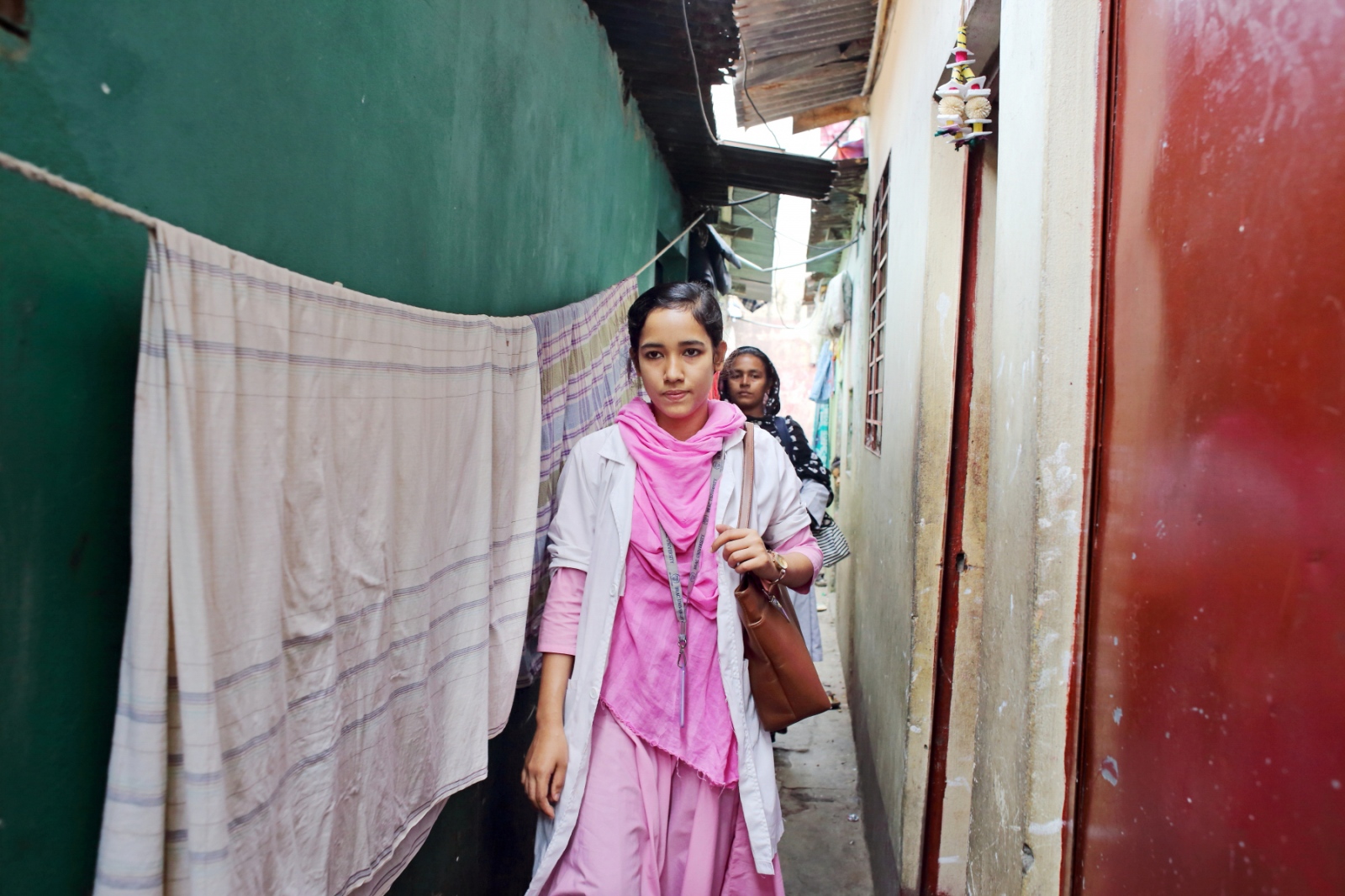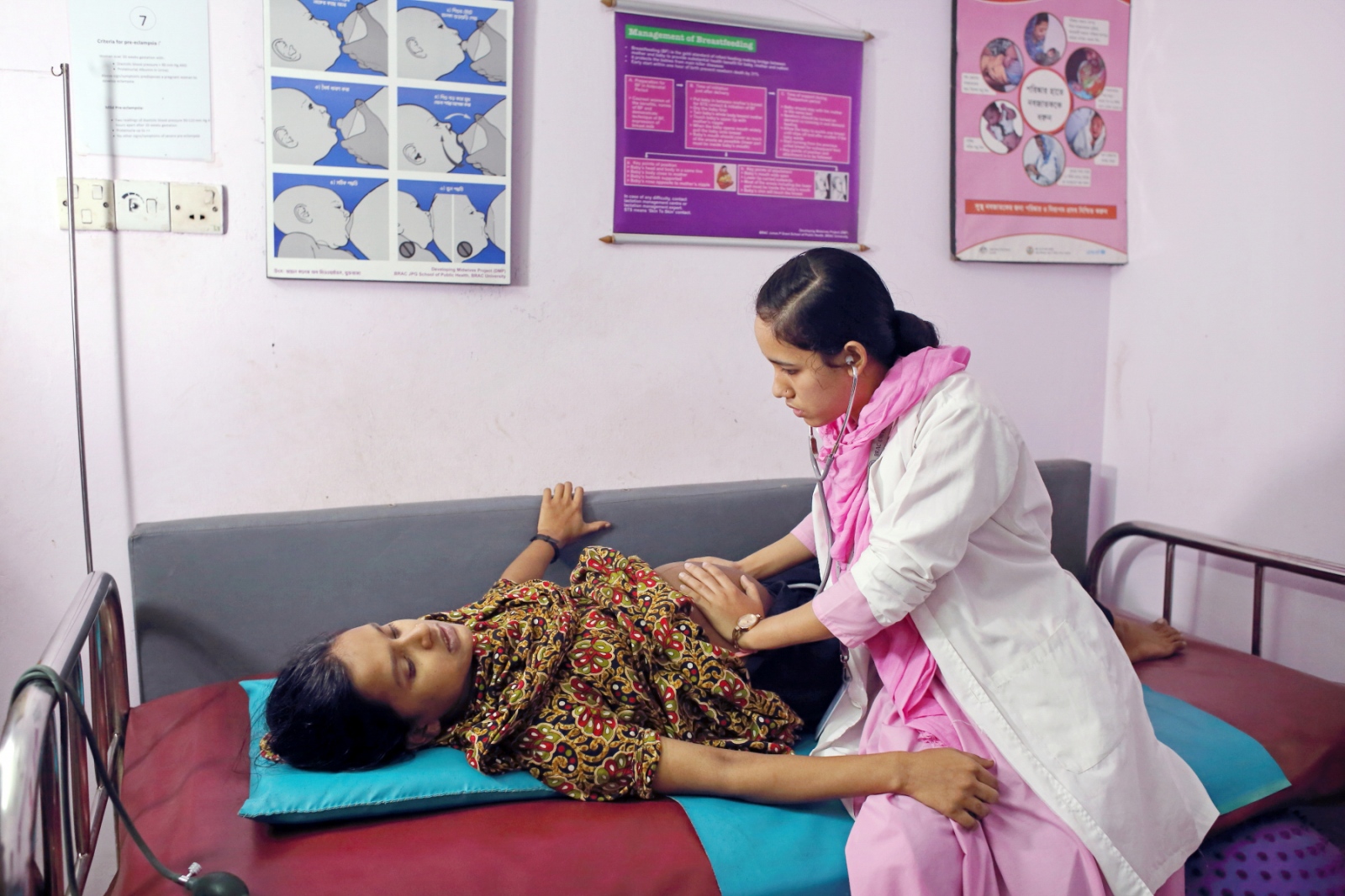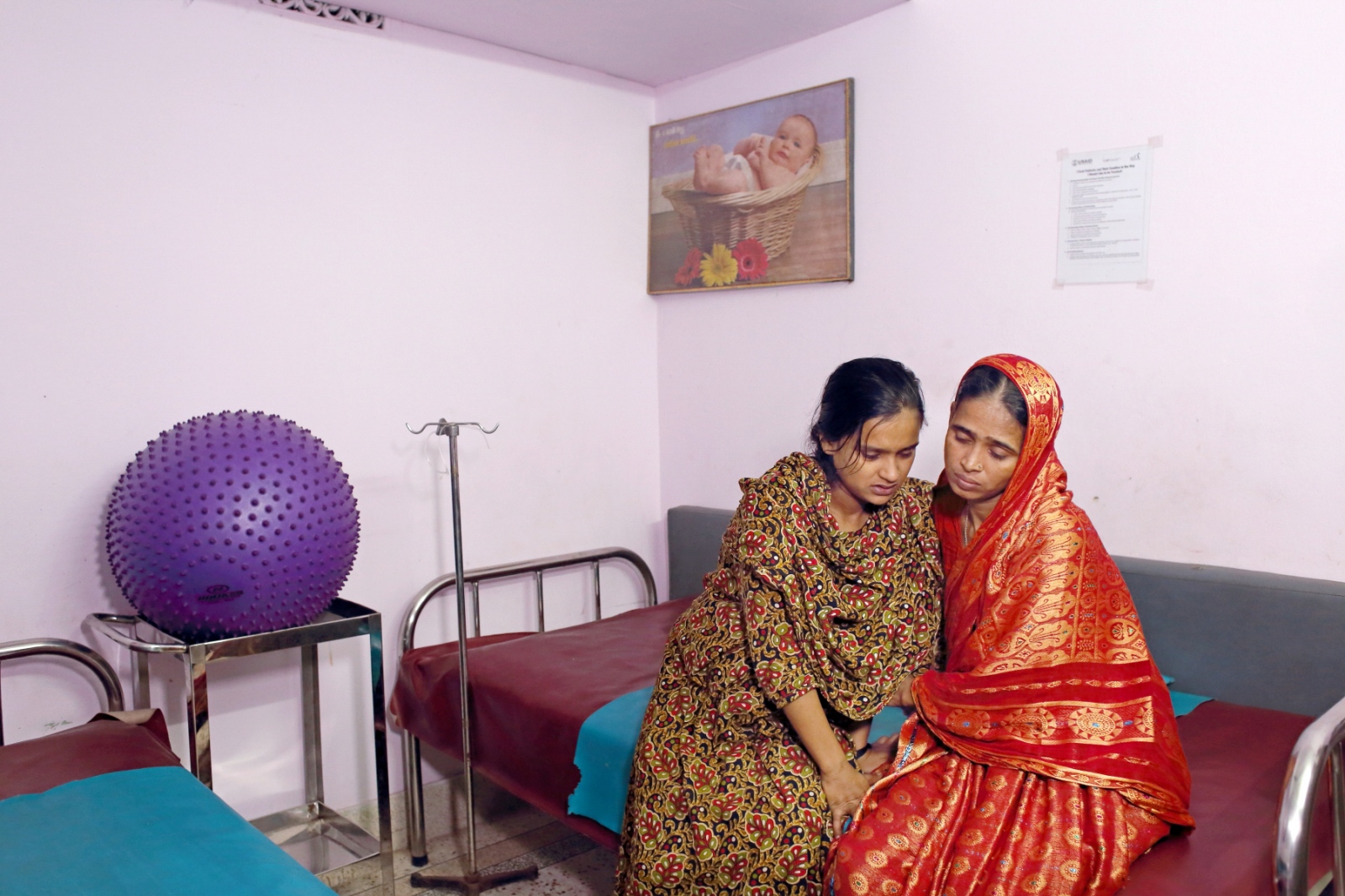Private Story
Midwives - The Unsung Heroes
At the Battlefront of Birth
5000 mothers die in Bangladesh every year at birth. Midwives save lives - but they must defend themselves against prejudices of doctors and families. So they become pioneers of emancipation.
Afroja Akter, 23, wearing a pink headscarf and a pink dress, has been working as a midwife for eight months. In that time she gave birth to about a hundred babies. She explains to pregnant women about newborn jaundice and helps mothers breastfeed. Birth attendance, preventive care and follow-up - these are the same services offered by trained midwives in Cape Town, London or Hamburg.
Bangladesh was committed to the United Nations Millennium Development Goals, including the requirement to improve maternal health care. The mortality rate in the country has been steadily declining since the nineties. But the goal of the UN - a reduction of the deaths by three quarters - did not manage the country. Every year more than 5,000 women die of birth complications, almost 33 times more than in Germany. Most bleed to death.
Afroja works six days a week and has to drive three hours a day through Dhaka's everlasting traffic jam. She made wedged babies out of mothers, stopped bleeding, and decided when to take the women to the nearest hospital. She is proud of herself: no mother died with her.
Statistically, it is not yet possible to demonstrate how midwives influence maternal mortality rates in Bangladesh. Rondi Anderson, the midwife specialist of the UN Population Fund in Dhaka, hopes that this will be possible in about ten years. Altogether it took about 20,000 midwives to look after all mothers. So far, there is only one tenth of it. But there are other difficulties. There are no experienced colleagues who lead the newly trained. Some clinics used the midwives again as nurses and not in the delivery room. There was also a lack of medicines, Rondi Anderson says: "Bangladesh is still in its infancy."














